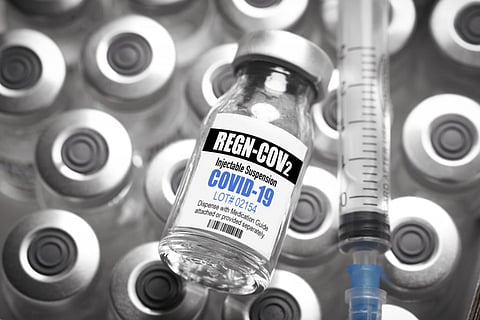

The World Health Organization (WHO) approved September 24, 2021 the Regeneron antibody combination for treatment of the novel coronavirus disease (COVID-19).
Patients at risk of hospitalisation, critically ill or seronegative (have not mounted an internal antibody response) should be prioritised for the therapy, the United Nations health agency suggested.
Regeneron is a combination of two drugs — casirivimab and imdevimab — that is shown to have reduce mortality in seronegative patients with severe infections. The drug cocktail, which replicates the natural antibody response of human beings, was approved by The Food and Drug Administration of the United States late last year after it was used on former president Donald Trump.
The United Kingdom also approved the therapy in August this year.
WHO invited pre-qualification proposals from manufacturers of products that can ramp up the production of the treatment. It also encouraged sharing of technology for “manufacturing of biosimilar versions” and ease of access across geographies. WHO said:
The Access to COVID-19 Tools (ACT) Accelerator partners are also working with WHO on an equitable access framework for recommended COVID-19 therapeutics.
Manufacturers and governments across the world have been urged to lower the price of the drug and ensure equitable distribution by producing sufficient doses. They should also roll out measures for proper handling and safe administration of the antibody combination.
UNITAID, a global health initiative, is negotiating with manufacturer Roche Pharmaceutical to address pricing and production problems, according to WHO. The organisation is also in talks with the company “for a donation and distribution of the drug through UNICEF” once an allocation criterion is arrived at.
The UN health agency outlined the challenges in rolling out this therapy at a large scale. Intravenous administration of the drug may be difficult in outpatient scenarios, it said. For such cases, it recommended subcutaneous application.
Specialised clinics, adequate amounts of antibodies and trained medical staff will be required for the therapy, WHO added.